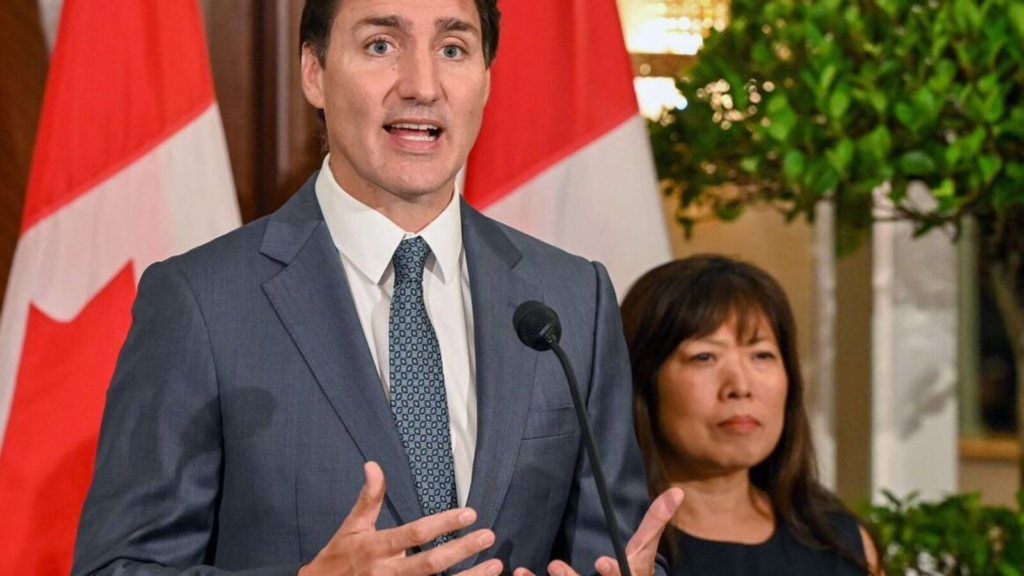Unintended consequences : The Canadian government’s move to permit foreign students to work longer hours has allegedly resulted in discrimination against British students, higher housing costs, and job displacement.
Unintended consequences : Introduction
Unintended consequences : Canada’s decision to amend its policy regarding international students’ work hours has sparked significant debate and triggered unforeseen consequences. This alteration, effective as of February 14, 2024, has raised concerns about its impact on various aspects of Canadian society, including housing, job availability, and the pathway to permanent residency. In this article, we delve into the ramifications of Canada’s shift in international student policy and explore the multifaceted effects it has had on both the economy and cultural landscape.
ALSO READ : A Call For Educational Reforms : Addressing Australia’s Literacy Crisis

The shift in policy : A double-edged sword
Unintended consequences : The Canadian government’s decision to allow international students to work more than the previous 20-hour limit has been met with mixed reactions. While intended to bolster revenue from foreign student fees, this move has unleashed a series of unintended consequences that have reverberated throughout the nation.

Housing crisis and job vacancies
Unintended consequences : One of the most pressing issues stemming from the policy change is the exacerbation of the housing crisis. With a surge in international students seeking employment, the demand for affordable housing has skyrocketed, driving rental prices to unprecedented levels. This surge in demand has left many Canadian residents struggling to secure suitable accommodation, leading to concerns about housing affordability and accessibility.
Furthermore, the influx of international students competing for job opportunities has disrupted the local labor market. The availability of cheap labor has led to a surplus of candidates vying for positions traditionally filled by Canadian residents. Consequently, there are growing apprehensions about the displacement of local workers and the long-term implications for employment dynamics in Canada.

The pathway to permanent residency
Unintended consequences : Canada’s allure as a destination for international students extends beyond academic pursuits, with many aspiring to secure permanent residency upon graduation. However, the policy shift has intensified competition for coveted residency spots, raising questions about the fairness and inclusivity of the immigration system. As international students vie for pathways to permanence, there are concerns about the potential marginalization of certain demographics and the impact on social cohesion.

Allegations of discrimination against british students
Unintended consequences : Amidst the influx of international students, allegations of discrimination against British applicants have surfaced, casting a shadow over Canada’s reputation as an inclusive and meritocratic society. Reports of highly qualified British candidates being overlooked in favor of high-paying international students have fueled debates about the integrity of the admissions process and the prevalence of financial incentives in educational institutions.

Preservation of cultural integrity
Unintended consequences : Beyond economic considerations, Canada’s evolving stance on international student policy underscores the delicate balance between fostering economic growth and preserving cultural integrity. As the nation grapples with the ramifications of its decisions, it must prioritize the equitable treatment of all students, irrespective of nationality or financial status. Failure to address these concerns risks eroding the foundational principles of fairness and inclusivity upon which Canada prides itself.

Key points
- The Canadian government’s decision to extend work hours for international students has led to unintended consequences, including a housing crisis and potential job displacement of local workers.
- Allegations of discrimination against British students have raised concerns about fairness in the admissions process and educational equity.
- The competition for permanent residency among international students highlights broader questions about the integrity of the immigration system and its impact on Canadian society.
- Balancing economic growth with cultural preservation is imperative as Canada navigates the complexities of its international student policy.

Conclusion
In conclusion, Canada’s decision to amend its international student policy has ignited a firestorm of controversy and raised fundamental questions about the intersection of economics and culture. While aimed at enhancing revenue streams and attracting global talent, the unintended consequences have underscored the need for a nuanced and comprehensive approach to policy formulation. As Canada navigates the complexities of its immigration landscape, it must remain steadfast in its commitment to fostering an inclusive and equitable society for all.
To explore more news : Click Here
ALSO READ : IIT Delhi And Queensland University Unveil Exciting Joint PhD Program




































